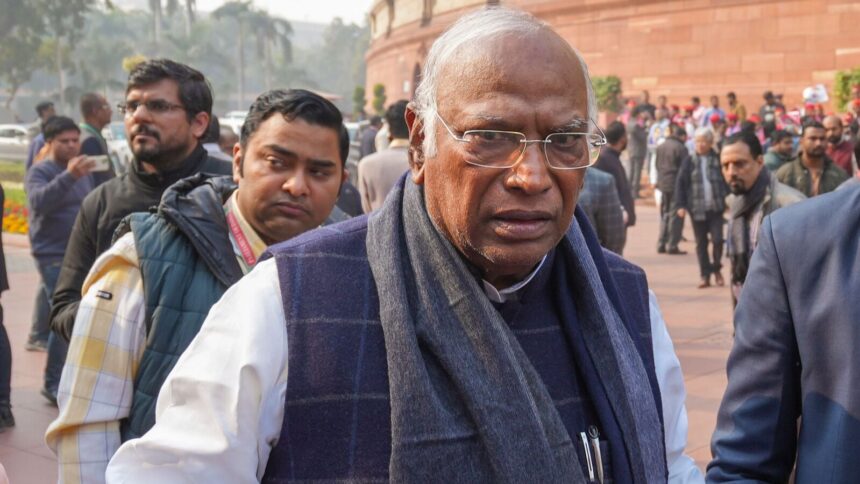Title: The Integrity of the Election Commission Under Scrutiny: An Analysis of Recent Amendments
In recent days, the political discourse in India has been dominated by significant changes to the election rules that have raised concerns regarding the integrity of the Election Commission of India (ECI). Congress President Mallikarjun Kharge has emerged as a vocal critic of these moves by the Modi government, framing them as part of a systematic conspiracy to undermine the ECI’s independence and authority.
Unpacking the Controversy
On December 11, 2023, Kharge condemned the central government’s amendment to election regulations that now restricts public access to certain electronic documents, including CCTV footage, webcasting recordings, and other video materials related to electoral procedures. In his statements, he labeled this amendment as a “calibrated erosion” of the ECI’s credibility, equating it to a frontal assault on the Constitution and democracy itself.
Kharge further explained that these amendments are not isolated instances. He pointed out a troubling trend where the government previously altered the composition of the selection panel for appointing Election Commissioners by removing the Chief Justice of India, indicating a persistent effort to shape the ECI in a manner that could favor ruling party interests.
The Legal and Political Implications
The recent alteration to Rule 93(2)(a) of the Conduct of Election Rules, 1961, follows a recommendation from the ECI, which has drawn criticism for its perceived complicity in these governmental maneuvers. Critics argue that preventing public inspection of critical election-related documents has serious implications for transparency, accountability, and public trust in the electoral process.
Kharge’s attacks on the ECI spotlight more significant concerns within the political landscape, where he accuses the Commission of responding to allegations by the Congress party with a dismissive attitude. This assertion raises questions about the ECI’s independence and whether it can maintain its role as a neutral arbiter in elections amidst growing political pressures.
The Broader Context
This controversy unfolds against a backdrop of escalating tensions between the ruling party and the opposition, particularly regarding electoral fairness and democratic norms. Various complaints, such as allegations of voter deletions and discrepancies in Electronic Voting Machines (EVM), have been unresolved, contributing to the narrative of a compromised election process.
Furthermore, Kharge’s remarks are not just criticisms but a rallying call for safeguarding democratic institutions. His insistence on taking “every step” to protect constitutional values underscores the urgency felt by opposition leaders as they navigate an increasingly complex political landscape.
Conclusion: What Lies Ahead?
As the political climate continues to intensify, the implications of these amendments will be closely monitored by political analysts, civil society, and the electorate. The central questions remain: Will these changes further erode public trust in electoral integrity? Can the ECI maintain its independence in the face of escalating scrutiny and governmental pressure?
As discussions around electoral reforms and transparency grow, it is essential for voters and advocates of democracy to remain informed and engaged. The integrity of democratic processes is foundational to government accountability and public faith in electoral outcomes—it is a dialogue that is far from over.
In the ongoing discussions surrounding these amendments, one thing is clear: the intersection of politics and electoral integrity will continue to be a pivotal issue in shaping India’s democratic future.










